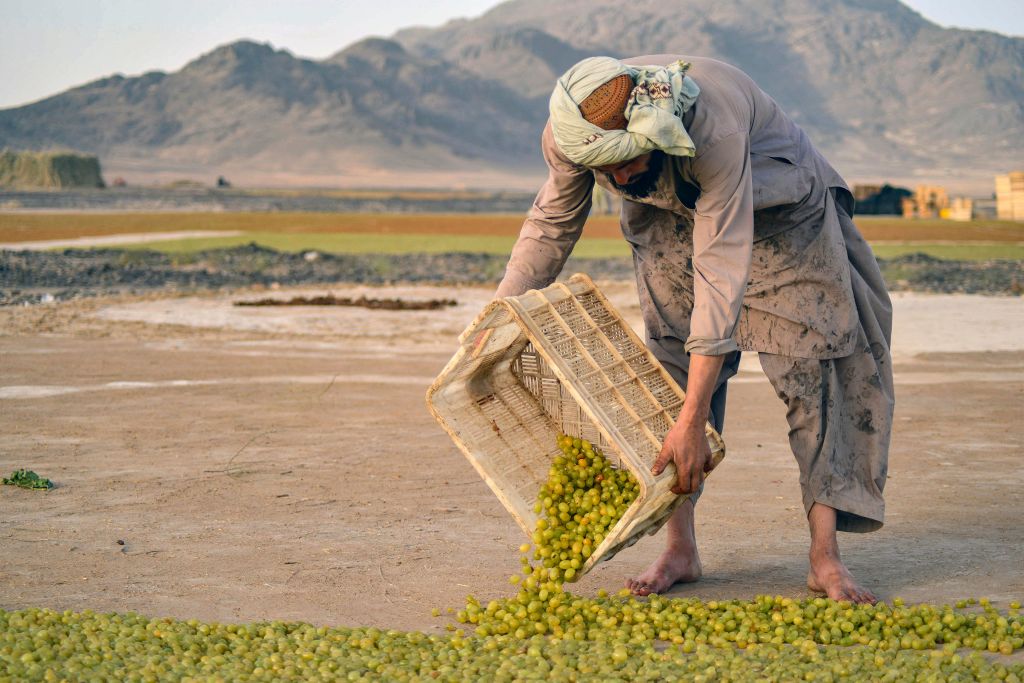'It was a big failure': How the U.S. bungled growing the Afghan economy


A free daily email with the biggest news stories of the day – and the best features from TheWeek.com
You are now subscribed
Your newsletter sign-up was successful
After spending $145 billion in two decades, the U.S. has withdrawn from Afghanistan and brought an end to its economic nation building efforts, which "largely failed," writes The Wall Street Journal.
Although Afghanistan's economy did grow as a result of overseas efforts, the system the U.S. helped build "relies overwhelmingly on foreign aid, most of which evaporated overnight," per the Journal. And while that foreign aid built roads, schools, and health facilities, critics say it neglected a "self-sustaining private sector."
Nowhere was the "failure to strengthen the Afghan state" more stark than in agriculture, argues the Journal. Even with $2 billion in U.S. spending funneled toward the cause, output "barely increased" over the last 20 years; in fact, it's share of GDP "has fallen to 20 percent from 70 percent in 1994, even though two in three Afghans still live in rural areas," writes the Journal.
The Week
Escape your echo chamber. Get the facts behind the news, plus analysis from multiple perspectives.

Sign up for The Week's Free Newsletters
From our morning news briefing to a weekly Good News Newsletter, get the best of The Week delivered directly to your inbox.
From our morning news briefing to a weekly Good News Newsletter, get the best of The Week delivered directly to your inbox.
For example, when the U.S. Department of Agriculture in 2010 paid the American Soybean Association to introduce soybeans to Afghan farmers, "it was a big failure," said one farmer who participated. By his account, there wasn't enough water to grow the crop, proper seeds weren't available locally, and there was no market for the harvested crop, writes the Journal. An ASA spokeswoman disagreed, saying the project achieved "successes in line with or exceeding its original objectives."
The U.S. also tried introducing alternative crops to opium poppies, but farmers were "reluctant" to give up one of their few cash crops. Other options like saffron, pine nuts, and cotton were "far less lucrative, and rutted roads and poor storage infrastructure made exports difficult."
International experts now fear the Afghan economy is on the verge of collapse. Read more at The Wall Street Journal.
A free daily email with the biggest news stories of the day – and the best features from TheWeek.com
Brigid Kennedy worked at The Week from 2021 to 2023 as a staff writer, junior editor and then story editor, with an interest in U.S. politics, the economy and the music industry.
-
 Jeff Bezos: cutting the legs off The Washington Post
Jeff Bezos: cutting the legs off The Washington PostIn the Spotlight A stalwart of American journalism is a shadow of itself after swingeing cuts by its billionaire owner
-
 5 blacked out cartoons about the Epstein file redactions
5 blacked out cartoons about the Epstein file redactionsCartoons Artists take on hidden identities, a censored presidential seal, and more
-
 How Democrats are turning DOJ lemons into partisan lemonade
How Democrats are turning DOJ lemons into partisan lemonadeTODAY’S BIG QUESTION As the Trump administration continues to try — and fail — at indicting its political enemies, Democratic lawmakers have begun seizing the moment for themselves
-
 Key Bangladesh election returns old guard to power
Key Bangladesh election returns old guard to powerSpeed Read The Bangladesh Nationalist Party claimed a decisive victory
-
 Epstein files topple law CEO, roil UK government
Epstein files topple law CEO, roil UK governmentSpeed Read Peter Mandelson, Britain’s former ambassador to the US, is caught up in the scandal
-
 Iran and US prepare to meet after skirmishes
Iran and US prepare to meet after skirmishesSpeed Read The incident comes amid heightened tensions in the Middle East
-
 EU and India clinch trade pact amid US tariff war
EU and India clinch trade pact amid US tariff warSpeed Read The agreement will slash tariffs on most goods over the next decade
-
 Israel retrieves final hostage’s body from Gaza
Israel retrieves final hostage’s body from GazaSpeed Read The 24-year-old police officer was killed during the initial Hamas attack
-
 China’s Xi targets top general in growing purge
China’s Xi targets top general in growing purgeSpeed Read Zhang Youxia is being investigated over ‘grave violations’ of the law
-
 Panama and Canada are negotiating over a crucial copper mine
Panama and Canada are negotiating over a crucial copper mineIn the Spotlight Panama is set to make a final decision on the mine this summer
-
 Why Greenland’s natural resources are nearly impossible to mine
Why Greenland’s natural resources are nearly impossible to mineThe Explainer The country’s natural landscape makes the task extremely difficult
